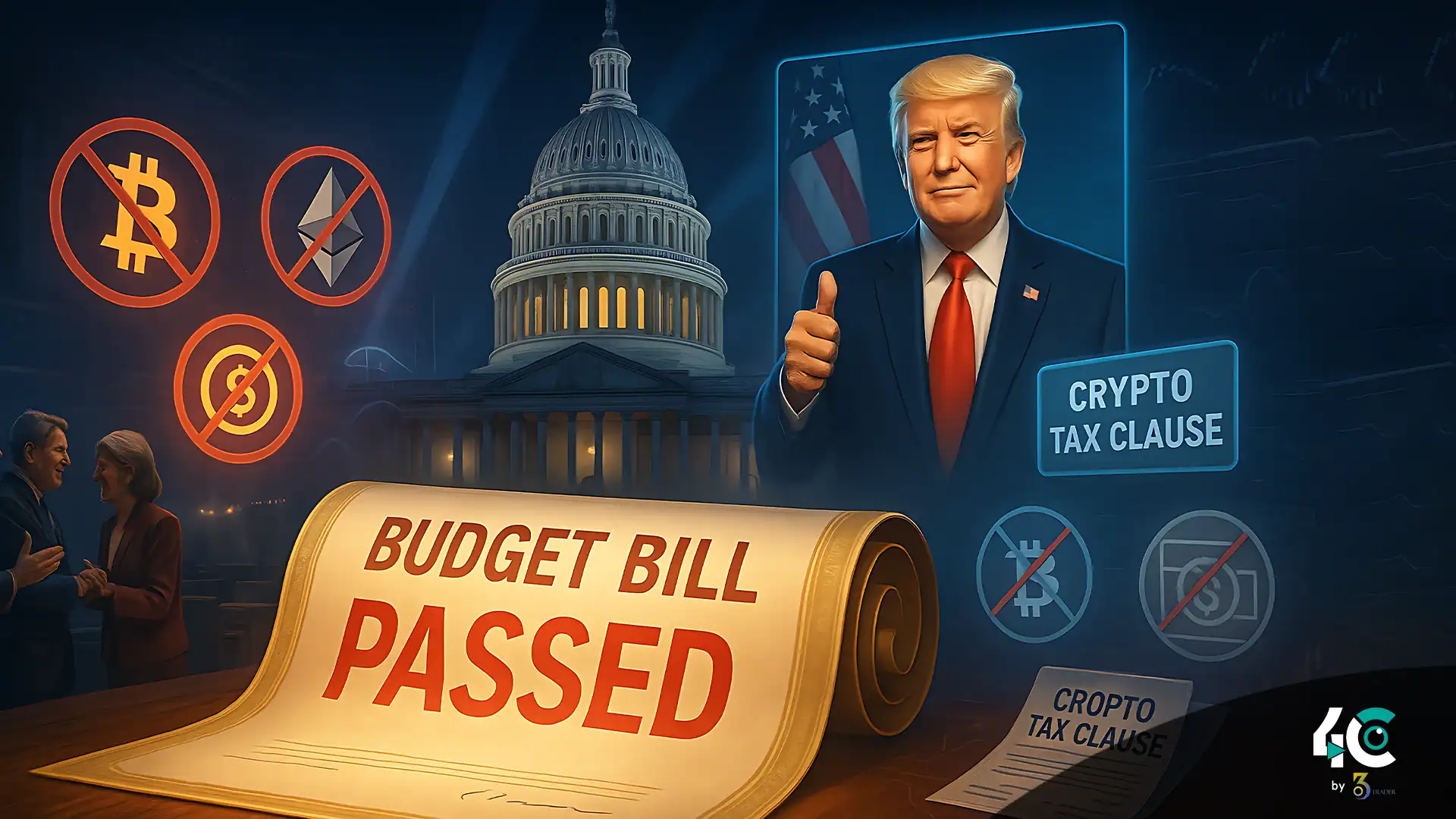After more than 27 hours of voting, the senators of the U.S. have passed One Big Beautiful Bill (Donald Trump’s Budget Bill).
The bill, which features deep tax reductions and significant spending changes, passed narrowly by a vote of 50–50, with the tie broken by Vice President JD Vance.
The legislation is a big political victory in the eyes of Trump and Republican leadership. For all the talk about crypto taxation reform, however, there aren’t any provisions referencing it.
Wyoming’s Senator Cynthia Lummis proposed a vital amendment to terminate what she perceives as the “double taxation” of crypto miners and stakers. Under her proposal, when mining and staking rewards would be taxed would have been made certain, as would exemptions for smaller crypto.
Nonetheless, Lummis’ proposal never got a vote in the Senate. Thus, the final version of the bill passed without any kind of reference to the digital asset industry, which disappointed advocates who hoped this would be an opportunity to align crypto taxes with the technology.
Alaska Representative Nicholas Begich stated that he would have preferred that provision in the final product. “But I think there will be other opportunities to attach it to future legislation,” he said.
Lawmakers on both sides of the aisle have criticized a new bill that would extend the Trump tax cuts of 2017 and cut spending from programs like Medicaid as well as food assistance. Due to potential cuts to healthcare access, rural infrastructure and artificial intelligence oversight, Democrats and a handful of Republicans are against the bill. The critics of the bill said that instead of helping the working class, the bill will help billion-dollar companies like Meta, who will benefit significantly.
Senator Elizabeth Warren said the bill “writes a $15 billion check to Meta while slashing healthcare for millions of Americans.”
At the same time, Senator Jeff Merkley’s amendment intended to block officials from holding or pushing crypto assets was also eliminated. The plan would stop top US leaders and their families from investing in or promoting crypto for one year after they left office.
Recently, the GENIUS Act went through the Senate. It is now with the House. Senators prepared this regulatory standard for stablecoins. Therefore, any major action will not happen soon. There are other crypto-focused bills like the BITCOIN Act and the CLARITY Act. Most likely, these bills will get delayed till the budget process. Lawmakers think these projects could return later this year or early 2026. Senator Lummis and other crypto-savvy legislators are happy, nonetheless, that some digital asset tax clarity will happen eventually in a future bill. At present, the crypto community is waiting as the political spotlight is trained on fiscal reform for now.



























